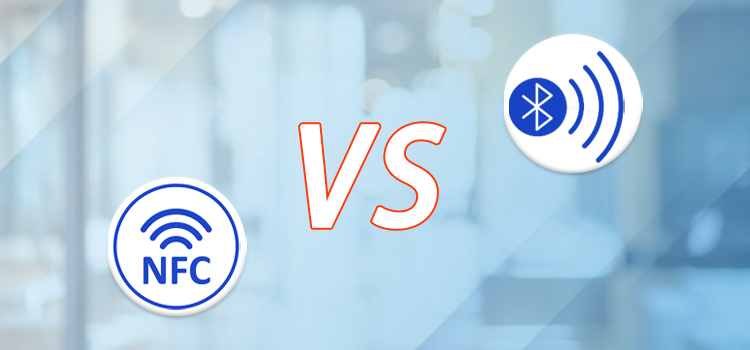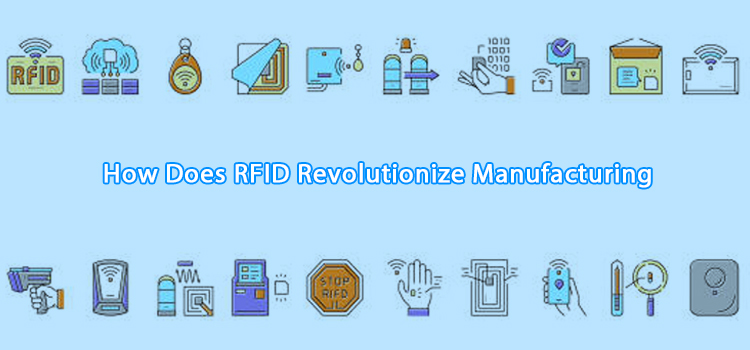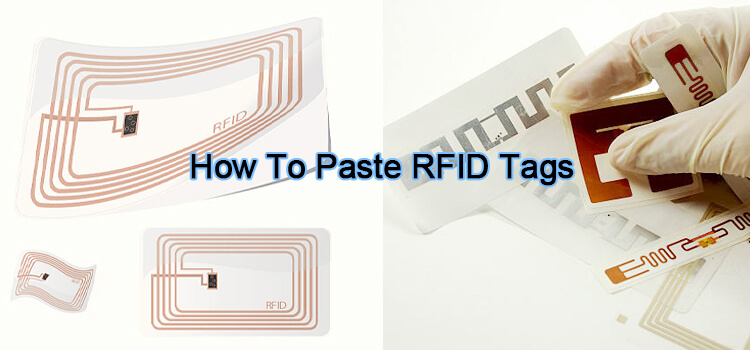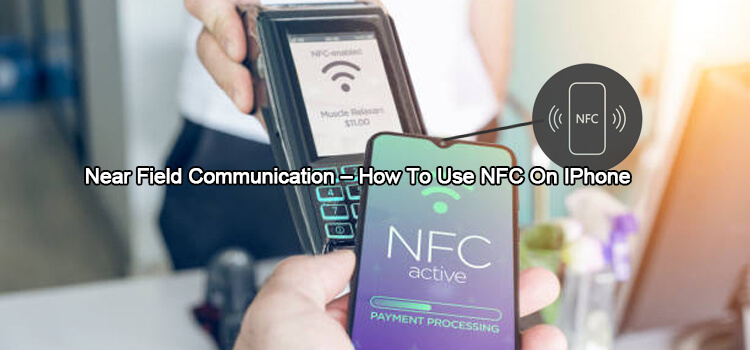Wireless communication has come a long way since the days of two-way radios and cordless phones. Currently, there are numerous wireless technologies, including NFC and Bluetooth.
Despite using the same communication method (radio waves), NFC and Bluetooth are two very different technologies not compatible with each other.
So, NFC vs. Bluetooth: What is the Difference? We answer this question comprehensively and look at the differences between the two technologies.
NFC (Near-Field Communication)
NFC is a wireless communication standard that allows data exchange between devices in close proximity to each other, typically 4 inches (10 cm) or less.
NFC is a subset of RFID technology and is an open standard supported by major mobile operating systems, including Android, iOS, and Windows Phone. It is regulated by the NFC Forum, a regulatory body founded by major technology companies, including Apple, Samsung, Sony, and Nokia.
NFC is primarily used for contactless payments (Apple Pay and Google Pay), but can also be used to exchange data between devices, such as two smartphones.
To use NFC, both devices must be NFC-enabled and must be placed close to each other. When the devices are near each other, they will establish a communication link that will allow them to exchange data.
Bluetooth
Bluetooth is a wireless communication standard designed to allow data exchange between devices close to each other, typically 30 feet (9 m) or less. It was first introduced in the early 1990s and has undergone several revisions.
The latest version, Bluetooth 5, was introduced in 2016. It offers significantly increased range and data transfer speeds. The technology is regulated by the Bluetooth SIG, a body founded by major technology companies, including Apple, Intel, Lenovo, Microsoft, and Nokia.
Bluetooth is used for connecting headphones, keyboards, mice, and other peripherals to computers and mobile devices. It can also be used to establish a wireless connection between two devices, such as two smartphones.
NFC Vs. Bluetooth: What Is The Difference?
- Frequency Used
Both technologies use radio waves but operate on different frequencies. NFC tags operates on the 13.56 MHz frequency, while Bluetooth uses the 2.4 GHz frequency.
To help you understand this better, we will briefly discuss frequency. So, what is the frequency?
In simple terms, frequency is the number of times a wave repeats itself in a given period, usually one second. The higher the frequency, the more times the wave repeats itself in a given period. For example, if a wave has a frequency of 10 MHz, it will repeat itself 10 million times in one second.
As such, the higher the frequency, the shorter the wavelength. NFC’s frequency is much lower than that of Bluetooth, which means that NFC has a longer wavelength and a lower data transfer rate.
- Communication Range
Range refers to the maximum distance that two devices can be apart and still communicate with each other. NFC’s communication range is much shorter than Bluetooth, with a typical range of 4 inches (10 cm) or less.
This is because NFC uses induction to create a magnetic field that powers the communication between devices. Bluetooth, on the other hand, uses radio waves, which have a much longer range. The typical Bluetooth range is 30 feet (9 m) or less.
- Data Transfer Rate
The data transfer rate is the speed at which two devices can exchange data. The higher the data transfer rate, the faster the two devices can communicate with each other.
NFC’s data transfer rate is slower than Bluetooth, with a typical data rate of 424 kbit/s. Bluetooth’s data transfer rate depends on the version, with the latest version, Bluetooth 5, having a data transfer rate of up to 2 Mbit/s.
What this means is that NFC is designed for short-range communication between devices that don’t need to exchange a lot of data. On the other hand, Bluetooth is designed for longer-range communication and can exchange data much faster than NFC.
- Power Consumption
NFC uses lower frequency radio waves, which means that it requires less power to operate. Bluetooth uses higher frequency radio waves, which require more power.
This is a critical difference between NFC and Bluetooth because it means that NFC is more power-efficient. You can use NFC for longer periods without worrying about recharging your device.
On the contrary, you should always turn off Bluetooth when not in use to save power. If not, your device’s battery will drain much faster.
- Cost
If you are looking at exchanging data, this question might not be so important to you. This is device manufacturers are integrating the two technologies into their products. As such, you will not have to incur any additional cost to use either technology.
However, if you are looking at deploying NFC or Bluetooth on a large scale, the cost will be a crucial factor. Bluetooth is less expensive than NFC. This is because NFC requires more expensive hardware, such as an NFC tags and NFC reader.
Additionally, you will need NFC chips or Bluetooth chips. Both technologies are available in low, mid, and high-end chips. The cost of the chips will also be a factor to consider.
- Security
NFC uses encryption to secure the data being exchanged between devices. This security feature means that no one can eavesdrop on the communication and intercept the data.
Bluetooth also uses encryption known as frequency-hopping spread spectrum (FHSS), which is not as secure as NFC. Its encryption algorithm is weaker and can be broken with the right tools and knowledge.
If security is a concern, you should use NFC rather than Bluetooth. This way, you will never worry about someone intercepting and reading your data.
- Convenience
NFC is more convenient than Bluetooth. First, you don’t need to pair NFC-enabled devices as you do with Bluetooth. You can touch the two devices together, and they will be connected.
Second, NFC has a shorter range than Bluetooth, meaning you are less likely to connect to another device unintentionally. With Bluetooth, you can easily connect to another device if it is within range, even if you don’t want to.
To avoid this, you must switch off your visibility or turn off Bluetooth when not in use. With NFC, you don’t need to do this because the range is so short.
Finally, NFC is more power-efficient than Bluetooth. This means you can use NFC for longer periods without worrying about recharging your device.
- Applications
The differences between NFC and Bluetooth mean that each technology is better suited for different applications. Here are the two factors that affect the use of the two technologies:
- Data Amount. Usually, NFC is better for small amounts of data while Bluetooth is better for large amounts of data.
- Data Speed. NFC has a slower data transfer rate and shorter range than Bluetooth. So, if you need to transfer a lot of data quickly, then Bluetooth is the better option.
NFC is typically used for short-range communication, such as exchanging data between two devices or making payments. It is incorporated into many devices, such as smartphones, smart watches, and fitness trackers. It is also the central technology in payment apps, such as Android Pay and Apple Pay.
On the other hand, Bluetooth is usually used for longer-range communication, such as connecting a headset to a phone or streaming music from a phone to a speaker. Other unique applications of Bluetooth include finding a lost device and using Bluetooth beacons for location-based marketing.
NFC vs. Bluetooth: Which Should You Use?
If you are looking for a wireless technology to use for communication, you should consider NFC or Bluetooth. Both technologies have their advantages and disadvantages.
NFC is more convenient and power-efficient, but it has a shorter range and slower data transfer rate. Bluetooth is less convenient and not power-efficient, but it has a longer range and faster data transfer rate.
The choice of technology depends on the application. Before you select one, you should answer the following questions:
- What is Your Ideal Data Transfer Rate? The data transfer rate is the number of bits per second that can be transferred between two devices. If you need to transfer a lot of data quickly, Bluetooth is the better option.
- What is Your Ideal Range? The range is the distance between two devices. If you need to communicate over a long distance, then Bluetooth is the better choice.
- Do You Need to Secure the Communication? NFC uses encryption to secure the data being exchanged between devices. If you are concerned about someone intercepting and reading your data, then NFC is the better option.
- What are You Trying to Connect? The application will also dictate the best technology to use. For example, if you want to connect a headset to a phone, then Bluetooth is the better choice. If you want to make a payment, then NFC is the better option.
Overall, the choice of NFC or Bluetooth is a personal preference. It depends on your needs and the application you are using. If you are unsure, you can always try both technologies and see which one works better for you.





